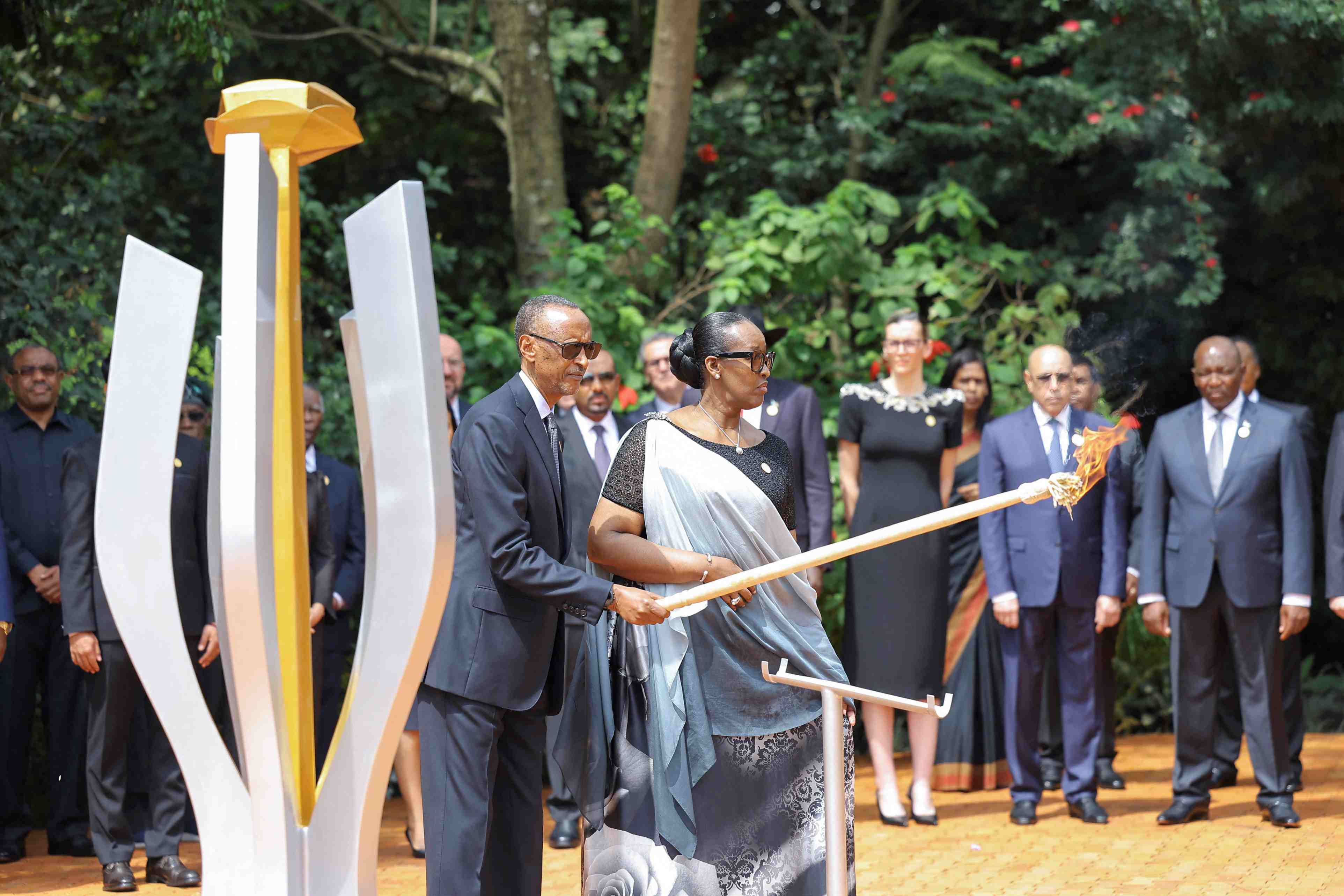Rwanda to commemorate 1994 Genocide amid regional tiffs

Every year, Rwanda marks 'Kwibuka', 'Remembrance' in Kinyarwanda- a sombre 100-day commemoration of the genocide which began on 7 April 1994. President Paul Kagame is expected to pay his respects at the Kigali Genocide Memorial, the site where more than 250,000 victims are believed to be buried.
Every year, Rwanda marks 'Kwibuka', 'Remembrance' in Kinyarwanda- a sombre 100-day commemoration of the genocide which began on 7 April 1994.
President Paul Kagame is expected to pay his respects at the Kigali Genocide Memorial, the site where more than 250,000 victims are believed to be buried.
He will deliver a speech and light the flame of remembrance, with foreign dignitaries in attendance.
This year's anniversary comes as Rwanda faces renewed accusations of backing the Tutsi-led M23 group, currently fighting in eastern Democratic Republic of Congo.
The European Union has imposed sanctions on three senior Rwandan military commanders and the head of Kigali's state mining agency over the M23 offensive in DRC.
The three commanders lead Rwanda's special forces and two divisions accused of deploying troops in eastern DR Congo to support the armed group, according to the EU's official journal.
The NGO Human Rights Watch recommends that EU institutions take further sanctions and make clear that measures will only be lifted when Rwanda ends its support of the M23.
For its part, Kigali cut diplomatic ties to its former colonial ruler Belgium in March, saying it had "consistently undermined" Kigali during the ongoing conflict in the Democratic Republic of Congo, which was also formerly under Belgian colonial rule.
"Belgium has clearly taken sides in a regional conflict and continues to systematically mobilise against Rwanda in different forums, using lies and manipulation to secure an unjustified hostile opinion of Rwanda, in an attempt to destabilise both Rwanda and the region," it said in a statement.
It added that the decision reflected "Rwanda's commitment to safeguarding our national interests and the dignity of Rwandans".
The UN designated 7 April as the Day of Remembrance of the Victims of the Rwandan Genocide in 2003.
In Rwanda, the date marks the beginning of a period of national mourning that lasts until 4 July, which is known as Liberation Day.
For 100 days, national flags will be flown at half-mast, music is not allowed in public places or on the radio, and sports events and films are banned from TV broadcasts.
Bars, clubs, and public leisure facilities are closed for at least a week.
The genocide, orchestrated by Hutu extremists against the Tutsi minority, remains one of the darkest episodes of genocidal violence since the Second World War.
It was triggered by the assassination of Hutu President Juvenal Habyarimana on the night of 6 April 1994, when his plane was shot down over Kigali by Hutu extremists and the Interahamwe militia.
The killing began the next day and lasted 100 days, taking the lives of 800,000 people.
While the majority of victims were Tutsis, moderate Hutus were also murdered.
The international community has been heavily criticised for failing to protect civilians, with the United Nations sharply reducing its peacekeeping force shortly after the outbreak of the violence.
